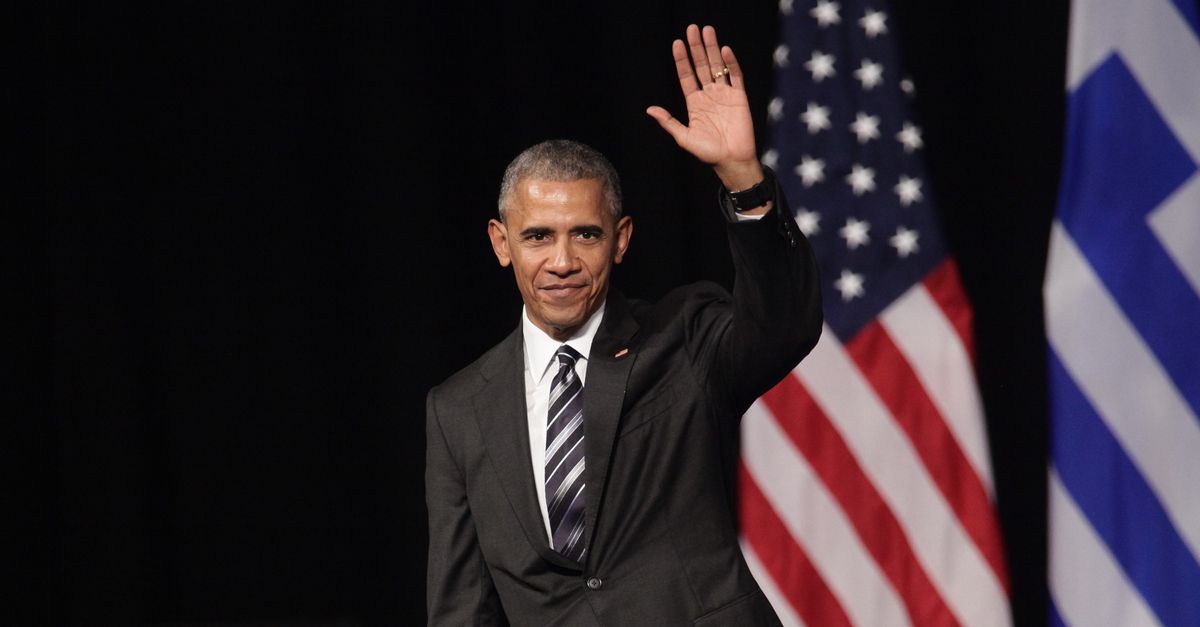Following reports in April 2017 that former President Obama would receive $400,000 for a Wall Street speaking engagement, House Oversight and Government Reform Committee Chairman Jason Chaffetz (R-Utah) confirmed via social media that Congress is likely to "go after" Obama's presidential pension as a result:
Obama's $400,000 speech could prompt Congress to go after his pension https://t.co/h17muKPMmE via @USATODAY Yes, it will
— Jason Chaffetz (@jasoninthehouse) May 4, 2017
The tweet linked to a USA Today article pointing out that Obama had vetoed Chaffetz's Presidential Allowance Modernization Act of 2016, which would have capped both presidential pensions and staff and office expenditures at $200,000 per year, and eliminated the latter entirely for ex-presidents making $400,000 or more in outside income:
"The Obama hypocrisy on this issue is revealing," said Rep. Jason Chaffetz, R-Utah, chairman of the House Oversight and Government Reform Committee and sponsor of the 2016 bill. "His veto was very self-serving."
Chaffetz and Sen. Joni Ernst, R-Iowa, the sponsor of the companion Senate bill, say they will re-introduce the Presidential Allowance Modernization Act this month. The bill would cap presidential pensions at $200,000, with another $200,000 for expenses. But those payments would be reduced dollar-for-dollar once their outside income exceeds $400,000.
An aide to the House Oversight Committee said the legislation was aimed at realigning all presidential pensions and allowances, not just Obama's, and described his last-minute veto of the 2016 bill (which was first introduced in 2012 and re-introduced by Chaffetz every year since then) as a "head scratcher":
During the 114th Congress, the bill finally received traction with backing from Democrats and was voted on in both the House and Senate passing unanimously through both chambers. Even with all that bipartisan/bicameral support, the bill was vetoed by President Obama.
A July 2016 release from the White House press office said that although President Obama shared the goal of "streamlining" former presidents' pensions, the bill passed by Congress was unworkable:
Unfortunately, this bill as written would immediately terminate salaries and all benefits to staffers carrying out the official duties of former Presidents – leaving no time or mechanism for them to transition to another payroll. As written, this bill would also impair Secret Service's ability to protect former Presidents by ending GSA's role in managing operations, equipment and office space. Under this bill, GSA must immediately terminate leases, and remove furniture from offices of former Presidents working to fulfilling their continued public service responsibilities.
The President's decision to veto this bill was made after consultations with the offices of each of the former Presidents, and is responsive to concerns they raised to us. We are working with Congress on the technical fixes to resolve these issues. If Congress provides these technical fixes, the President would sign the bill.
Despite referring to "pensions," Obama's stated reason for vetoing the bill focused not on retirement pay, but on staff and administrative expenses provided by the federal government under the Former Presidents Act of 1958 (FPA). President Obama's 2017 budget proposal sought a total of $3,865,000 for expenditures covering all former presidents, including himself (an increase of $588,000 over the previous year).
As to the $400,000 speaking fee he allegedly commands, neither the former president's office nor the investment bank that reportedly hired him, Cantor Fitzgerald, L.P., responded to our requests to confirm the figure; previous press reports cited only unnamed sources.
To be sure, former presidents and administration officials are much sought after as public speakers. Politico reported in 2015 that George W. Bush, who has made at least 200 speeches since leaving office in 2009, gets $100,000 to $175,000 a pop. Bill Clinton reportedly makes as much as $225,000 per engagement, as does former First Lady and Secretary of State Hillary Clinton, who was paid $675,000 for a trio of speeches she gave at Goldman Sachs after leaving the State Department.
Clinton's windfall wasn't lost on Obama, who aimed a sideways jape at her in his remarks at the 2016 White House Correspondents Dinner: "If this material goes well," he said, "I'll use it at Goldman Sachs next year. Earn me some serious Tubmans."
Even some Democrats, including former presidential candidates Bernie Sanders and Elizabeth Warren, have expressed reservations about Obama accepting large speaking fees from Wall Street firms. However, senior adviser Eric Schultz said in a prepared statement that the former president will remain "true to his values, his vision, and his record" regardless of where, when, or to whom he speaks.
